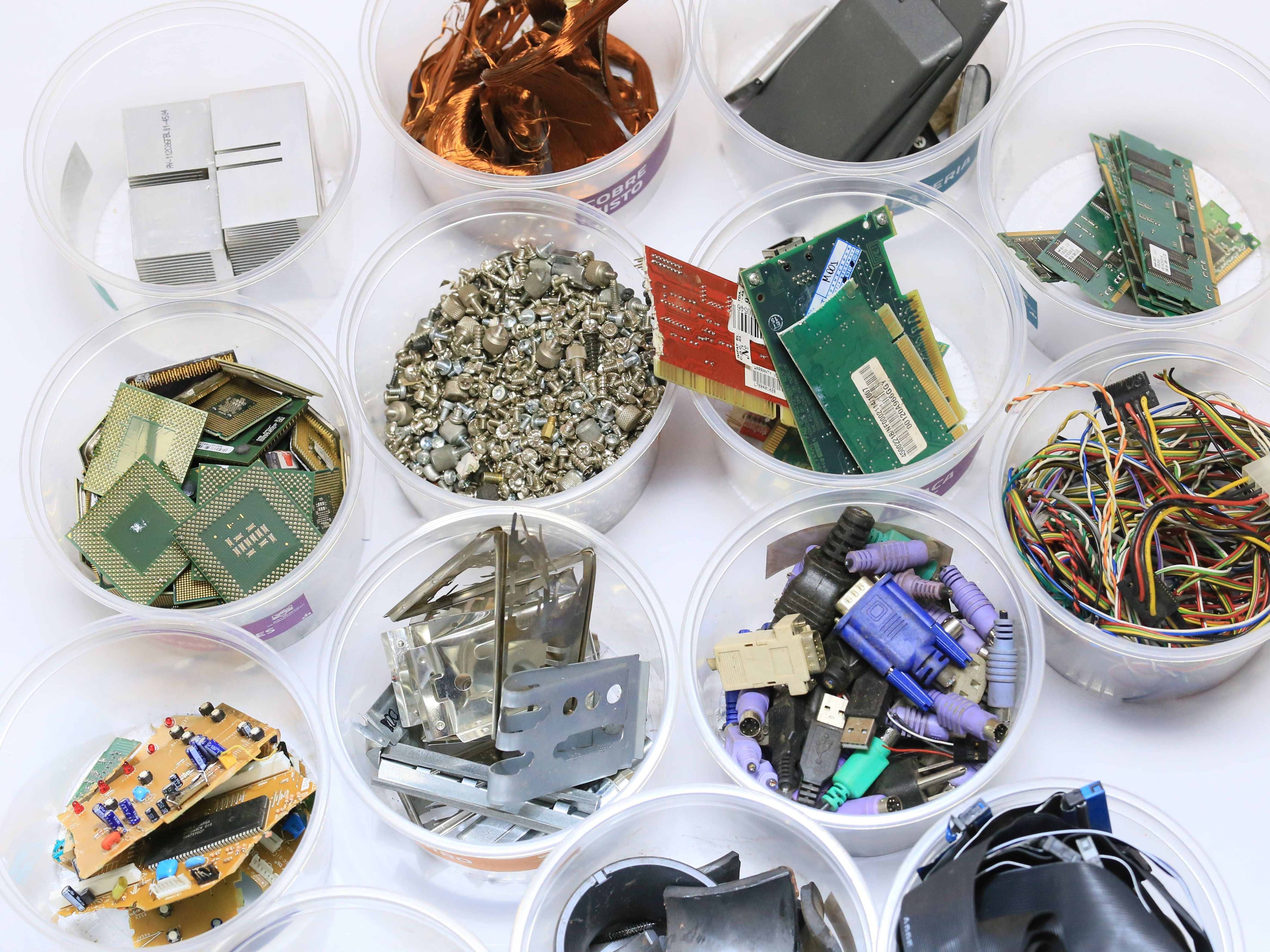
According to the United Nations Environment Program (UNEP), due to rapid changes in technology and falling prices in electrical devices, a high amount of high-tech electronic devices are becoming obsolete in the developed nations every year, making e-waste one of the top environmental challenges of the 21st century. In Togo, young entrepreneurs and innovators want to change the status quo and turn used electronics from the West into low-cost computers, printers and robots. One startup which tackles the problem of electric waste is WoeLab, an innovation hub for young entrepreneurs Lomé.
In 2018, about 45 million tonnes of e-waste globally were produced which is an increase of 15% compared to the year before where raw materials such as gold, silver copper, or platinum which 20% is not to be recycled and ends up in landfills, is incinerated or buried in the ground. Furthermore, due to the short lifespan of electrical products and higher purchasing power the waste stream amount increases.
WoeLab in Lomé specialises in the revaluation of unusable electronics where tech-savvy young people come up with solutions that clean the environment, ensure recycling of electronic waste, and educate residents on how to manage and valorise their electronic waste. WoeLab strengthens the recycling sector of electronic waste in Lomé and is an incubator for several start-ups.
WoeBots supports W.Afate by building a 3D printer that is built entirely from recycled electronics. W.Afate is a local project that gained international recognition. The goal of 3DPAE is to equip African schools with 3D printers. Today, ten Togolese schools have their own 3D W.Afate printer and 3DPAE trainers teach students between 13 to 14 years to design and print 3D objects.

Design for the future
Design for cyclability
Community collaboration
Design for recycling
Strengthen and advance knowledge
Ecological Impact
Social Impact
Economic Impact
Increase Awareness
Jobs
Well-being
Equality
Productivity
Minimise Waste (SDG12)
